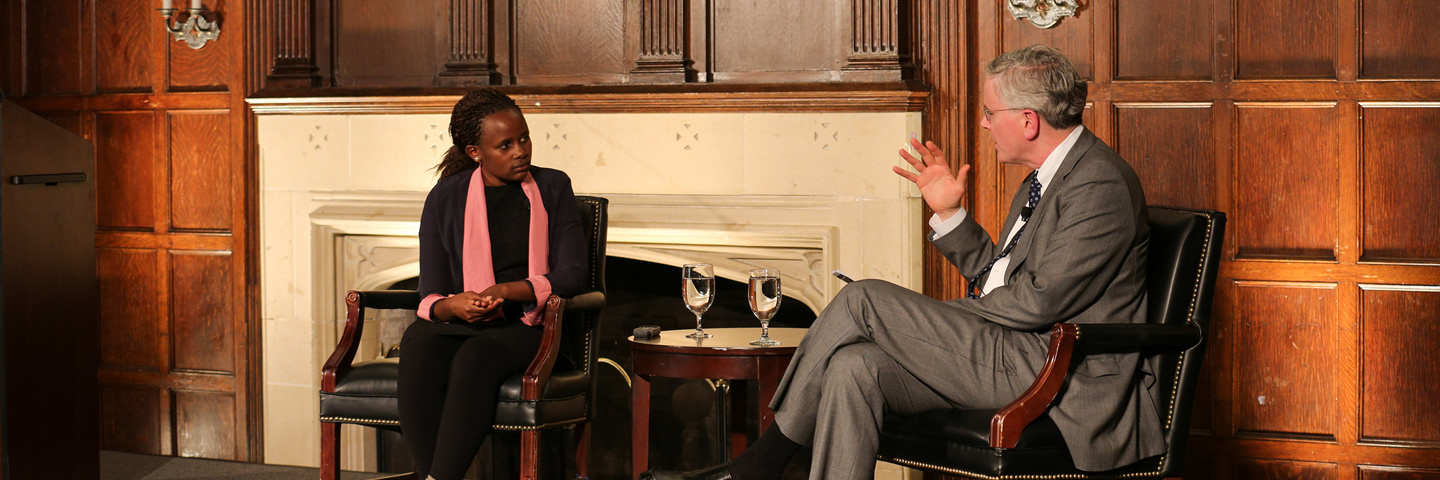
Dr. Mireille Twayigira’s story is one of loss, resilience, and survival, but above all, it is a story of hope. As an avid advocate for refugee education, Dr. Twayigira spoke to an eager crowd about the scope of the global refugee crisis and her own inspiring story.
In partnership with the Berkley Center for Religion, Peace, and World Affairs and Jesuit Refugee Service/USA, the event “Full of Hope: One Refugee’s Journey of Survival, Resilience, and Education” demonstrated the power that education can have in shaping the trajectory of one’s life.
Describing a Crisis
Twayigira asked the audience to use their phones to text answers to the question: “What comes to mind when you hear the word refugee?” Words like “friend,” “violence,” “journey,” “fear,” “persecution,” and “hope” all popped up.
She emphasized the enormity of the crisis with statistics: one person becomes displaced every two seconds, and more than half of the 25 million refugees are under the age of 18. Only 61 percent of refugee children attend primary school, 23 percent can attend secondary school, and only 1 percent attend university. Twayigira pointed out that in many settings education is delivered informally, where students are taught under trees and the weather is the boss — when it rains, there is no school.
Walking Across Africa
Born in Rwanda, Twayigira had to flee the Rwandan genocide when she was only a few years old. She and her family walked on foot to a refugee camp in Congo, and when war erupted in Congo in 1996 they walked to a new refugee camp in Angola.
That journey from the first camp to Angola was a tough one for a 5-year-old child. We would walk for days and nights, sometimes without food or water. We survived by begging, and you would find yourself eating things you never would have eaten otherwise.
After several more years of traveling, losing both her mother and grandmother along the way, by 2000 she reached Dzaleka refugee camp in Malawi. There she found a Jesuit Refugee Service-funded school with inspirational teachers who instilled a love of learning in her. Twayigira excelled at school and was among the students who received the highest grade in the country on her twelfth grade exams. As a result, she won a scholarship to study medicine in China.
I realized that I had to be here for a reason, and if I’m here for a reason I have to work hard. In China, I began to see hope in my own story. Up until that time, I just saw it as a tragic story and that’s it, but in China I saw love from my friends who supported me and I began to reflect and see that it’s a story of hope that I can share with other people.
Last May, Twayigira received her medical license and returned to Malawi for her residency. She now speaks in schools and encourages people to realize they can reach their potential through education.
Educating Refugees Benefits Everyone
Dr. Twayigira contrasted the tiny percentage of humanitarian aid earmarked for education with its crucial role in her own life journey. Unfortunately, conveying the importance of refugee education to policymakers and donors is a challenge.
In response, Dr. Twayigira described all of the incredibly skilled people she has encountered in refugee camps who could have a positive impact on society if they received the right educational resources. She emphasized that these refugees are eager to contribute to a larger community and investing in them as individuals can pay dividends for the host country’s economy, as her own story makes clear.
I want to be a beacon of hope to all, not just refugees but anybody going through hardship...I hope that we can see an increase in support of refugee education through my story.
Image Gallery
Image Gallery
/4
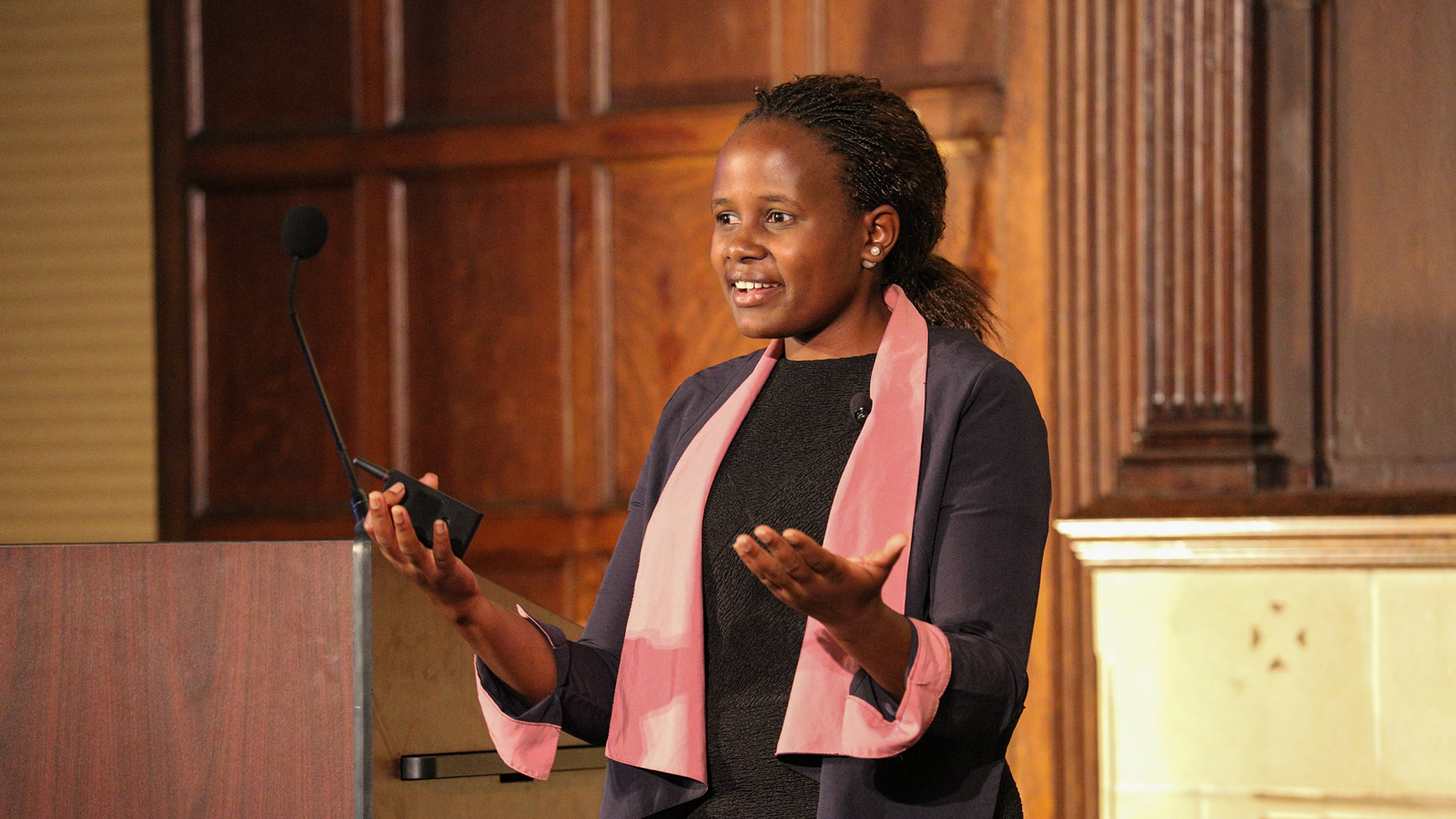
Dr. Mireille Twaiyigira tells her story.
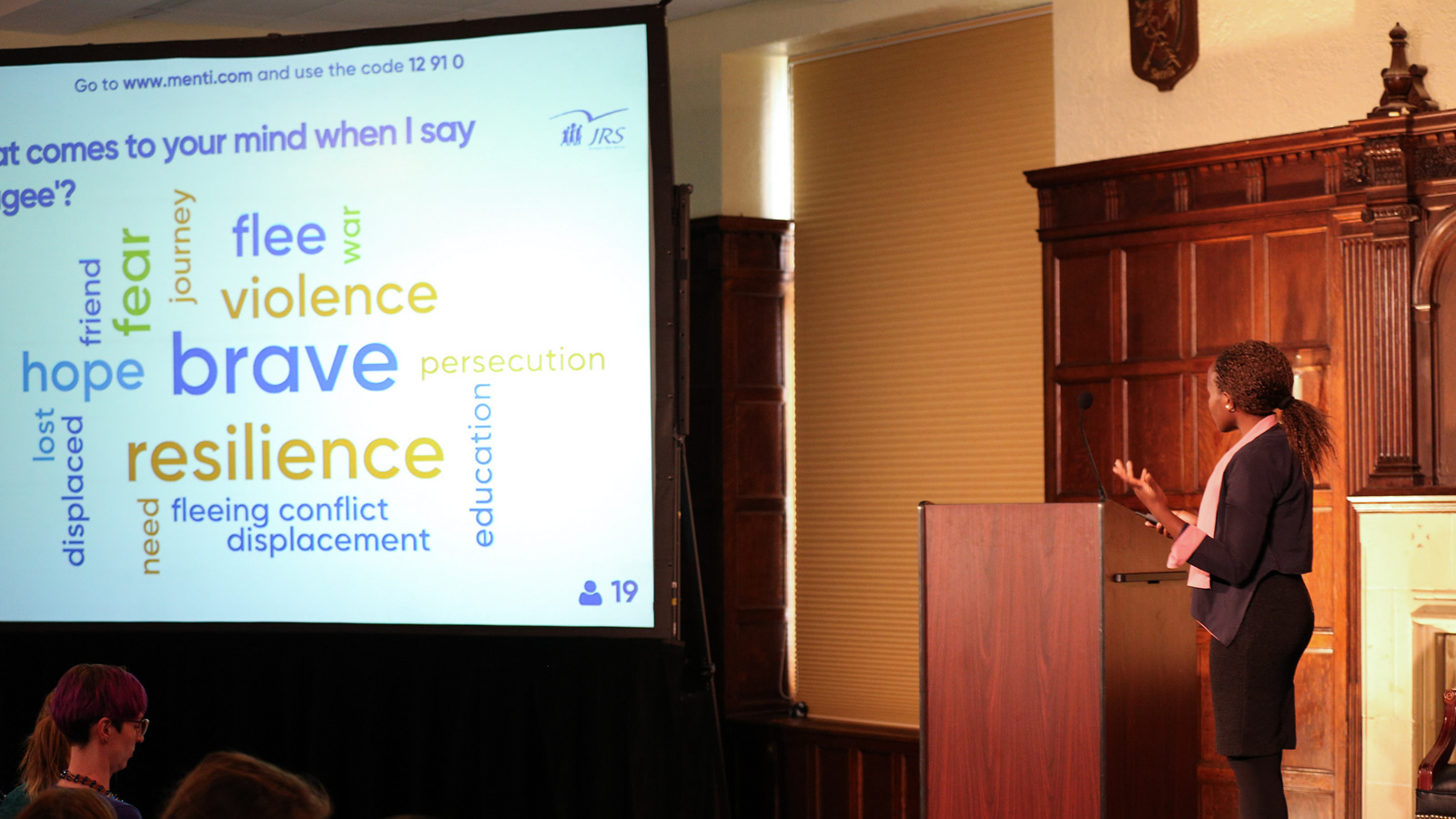
Twaiyigira asks audience members what they think of when they hear the word "refugee."
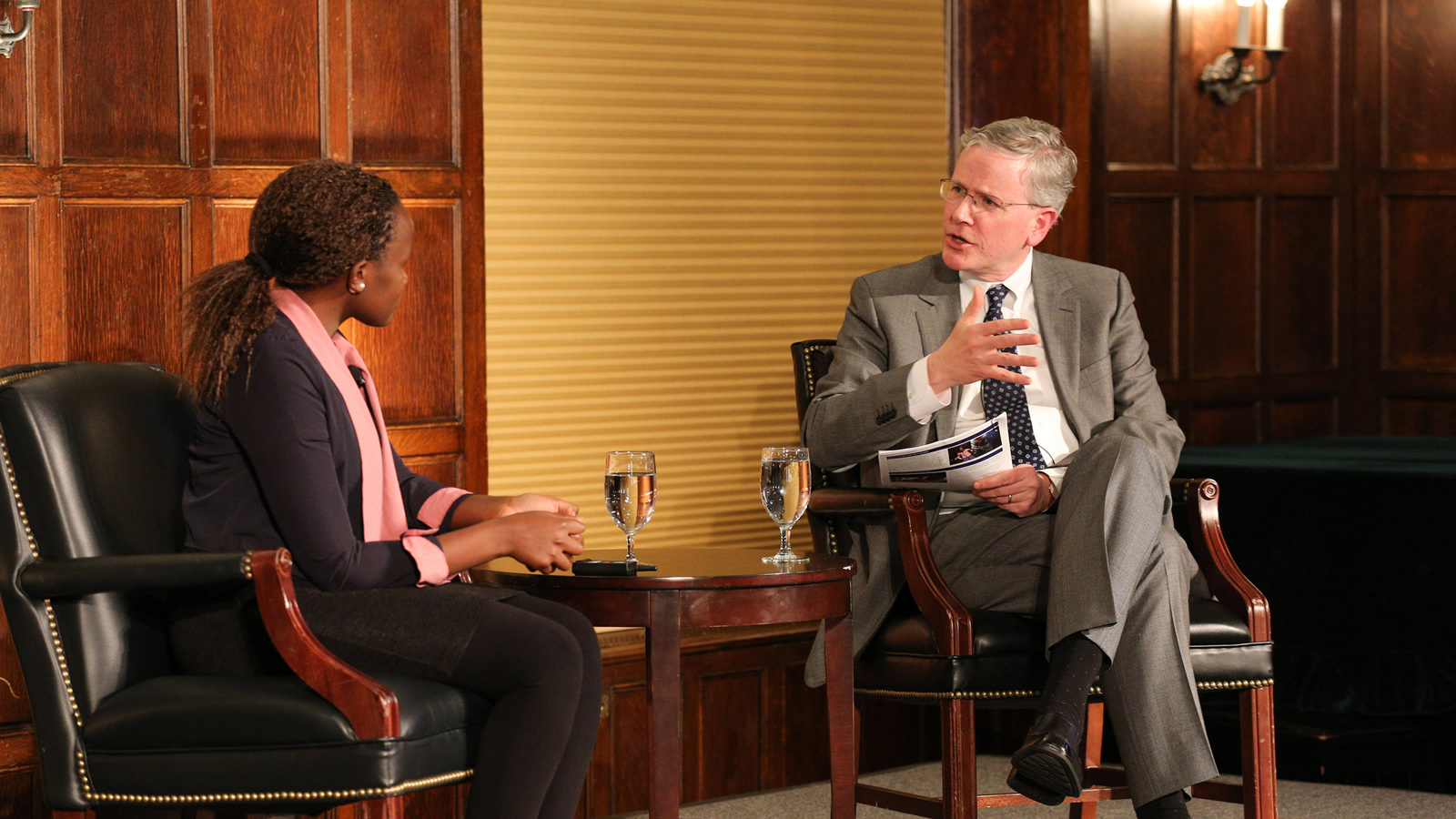
John T. Monahan asks Twaiyigira about her hopes for refugee education.
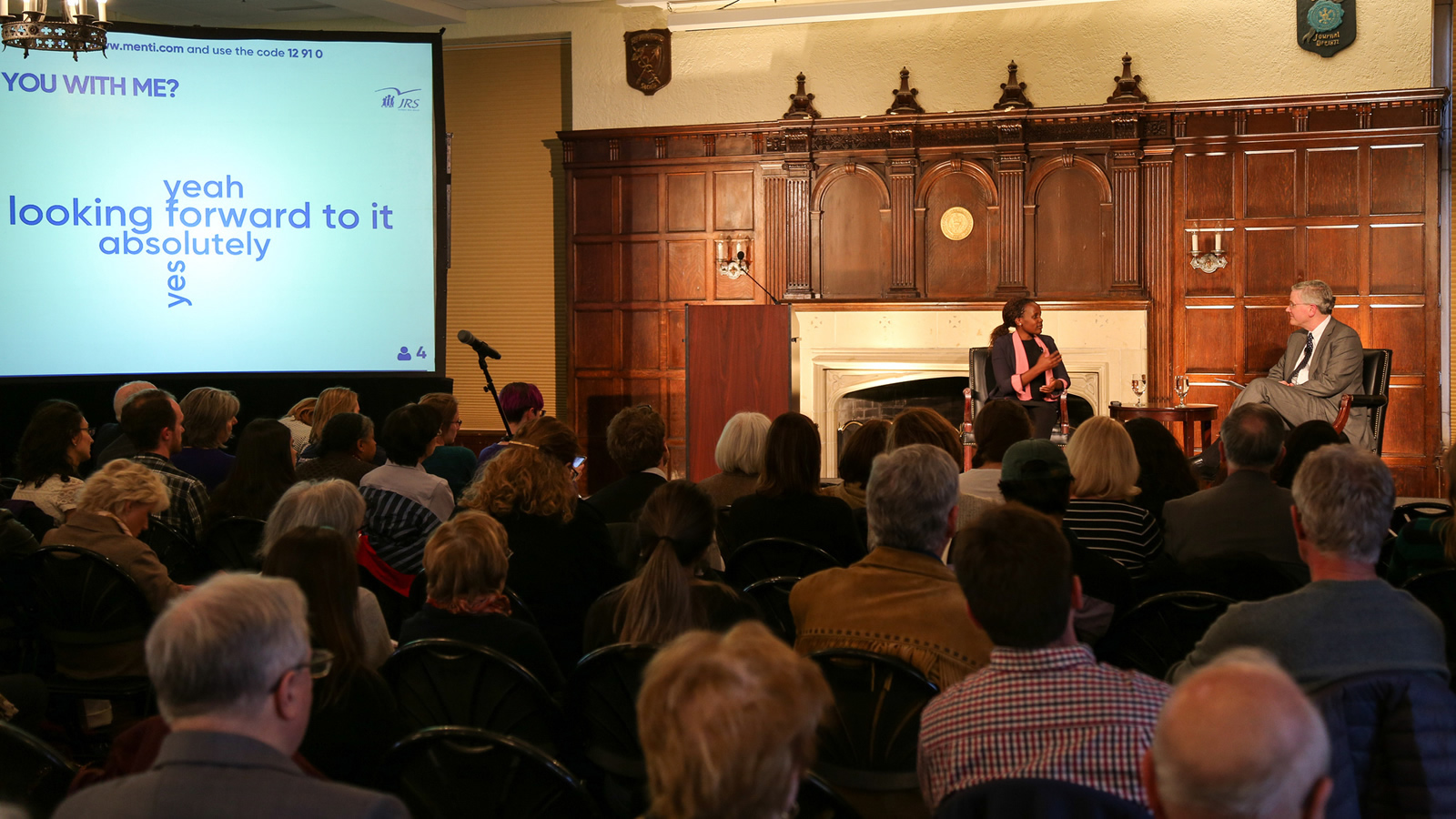
Audience members express support for Twaiyigira and expanded opportunities for refugee education.
